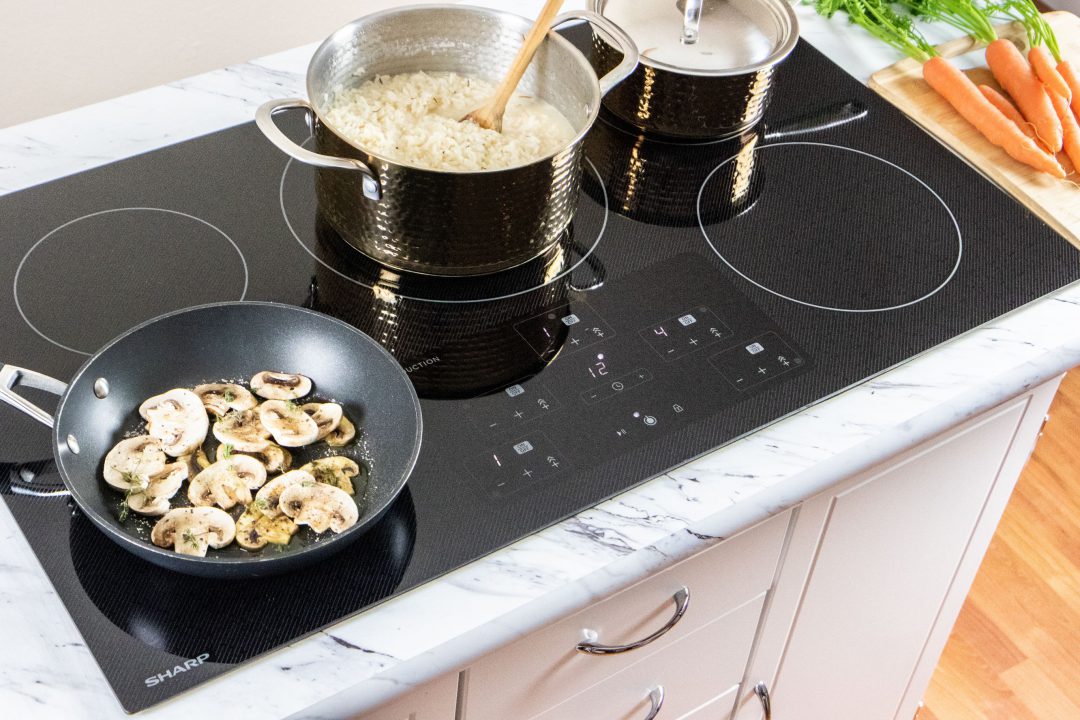Dealing with Sticky Food Challenges on Induction: A Guide for Barbecue Lovers
Written By James Morgan
For countless barbecue lovers, the appeal of using an induction cooktop is hard to resist. Its speed, precision, and energy efficiency make it a fantastic option. However, one of the prevalent challenges encountered is handling sticky food issues on induction surfaces. Whether youre searing juicy steaks or grilling vibrant vegetables, food sticking to the cooktop can be a source of frustration and can affect the final outcome of your dishes.
This article explores the underlying reasons for sticky food issues on induction cooktops, and it provides practical tips and solutions that will ensure your next barbecue experience is a resounding success.

What Causes Food to Stick on Induction Cooktops?
Grasping why food sticks on induction cooktops is essential in addressing this challenge. Unlike traditional gas or electric stoves, induction cooktops function using electromagnetic fields to directly heat the cookware. This means that the surface itself does not get very hot; rather, the heat is created within the cookware, allowing for precise temperature regulation.
Nonetheless, this precision can sometimes lead to sticky food issues, particularly if the cookware isnt heated adequately or if the cooking surface is improperly prepared. Furthermore, the type and quality of the cookware play a vital role in determining the cooking experience. Using induction-compatible cookware is key in achieving the best results.
Selecting the Right Cookware
To reduce sticky food issues on induction cooktops, its crucial to choose the right cookware. Barbecue lovers often favor cast iron and stainless steel for their excellent heat distribution and retention properties. Its equally important to ensure your cookware has a smooth, flat bottom to achieve optimal contact with the cooktop. Some modern cast iron cookware is specifically crafted for induction surfaces. For more information, you can refer to induction-friendly cast iron pans.
Importance of Preheating and Temperature Control
Correctly preheating your cookware is essential in avoiding food from sticking. Begin by setting your induction cooktop to a medium-high setting and allow your pan to warm for a few minutes. You can gauge the temperature by adding a few drops of water to the panif they sizzle and evaporate promptly, your pan is ready for cooking.
Consistency in temperature control is equally important. Induction cooktops allow for precise heat adjustments, which can help minimize food sticking. Avoid sudden changes in temperature while cooking, as this can lead to uneven cooking and increased sticking.
Utilizing Proper Cooking Techniques
Implementing suitable cooking techniques can significantly lessen sticky food issues on induction cooktops. Using enough cooking oil or fat is vital as it creates a protective barrier between the food and the cooking surface. Moreover, allowing food to form a natural crust before attempting to flip it can help to prevent sticking. This is especially crucial when searing meats or grilling vegetables.
It is also important to practice patience. Resist the urge to move or flip the food too soon. Letting the food cook undisturbed for a few minutes will allow it to naturally release from the cooking surface, resulting in a delightful sear or grill mark.
Common Pitfalls to Avoid
While induction cooking offers many advantages, there are common mistakes that can worsen sticky food issues. Frequent offenders include using non-induction compatible cookware, neglecting to properly preheat the pan, and skimping on oil. Additionally, overcrowding the pan can lead to uneven cooking and increased sticking. Consider checking out how pro chefs use grill grates for further tips.
For those eager to learn more about cast iron use on induction cooktops, this guide offers valuable insights.

FAQs
What can I do to prevent food from sticking on induction cooktops?
To avoid food from sticking, ensure your cookware is adequately preheated, use induction-compatible pans, and apply enough cooking oil or fat. Additionally, allow food to form a crust before flipping.
What cookware works best with induction cooktops?
Cast iron and stainless steel are top choices for induction cooktops due to their excellent heat retention. Always confirm that the cookware is induction-compatible and features a flat, smooth base.
Is cast iron usable on induction cooktops?
Yes, cast iron is compatible with induction cooking and is favored for its heat retention and distribution. For further details, check this resource on cast iron and induction.
By following these guidelines and grasping the nuances of cooking with induction cooktops, barbecue enthusiasts can tackle sticky food issues and relish perfectly cooked meals every time.



